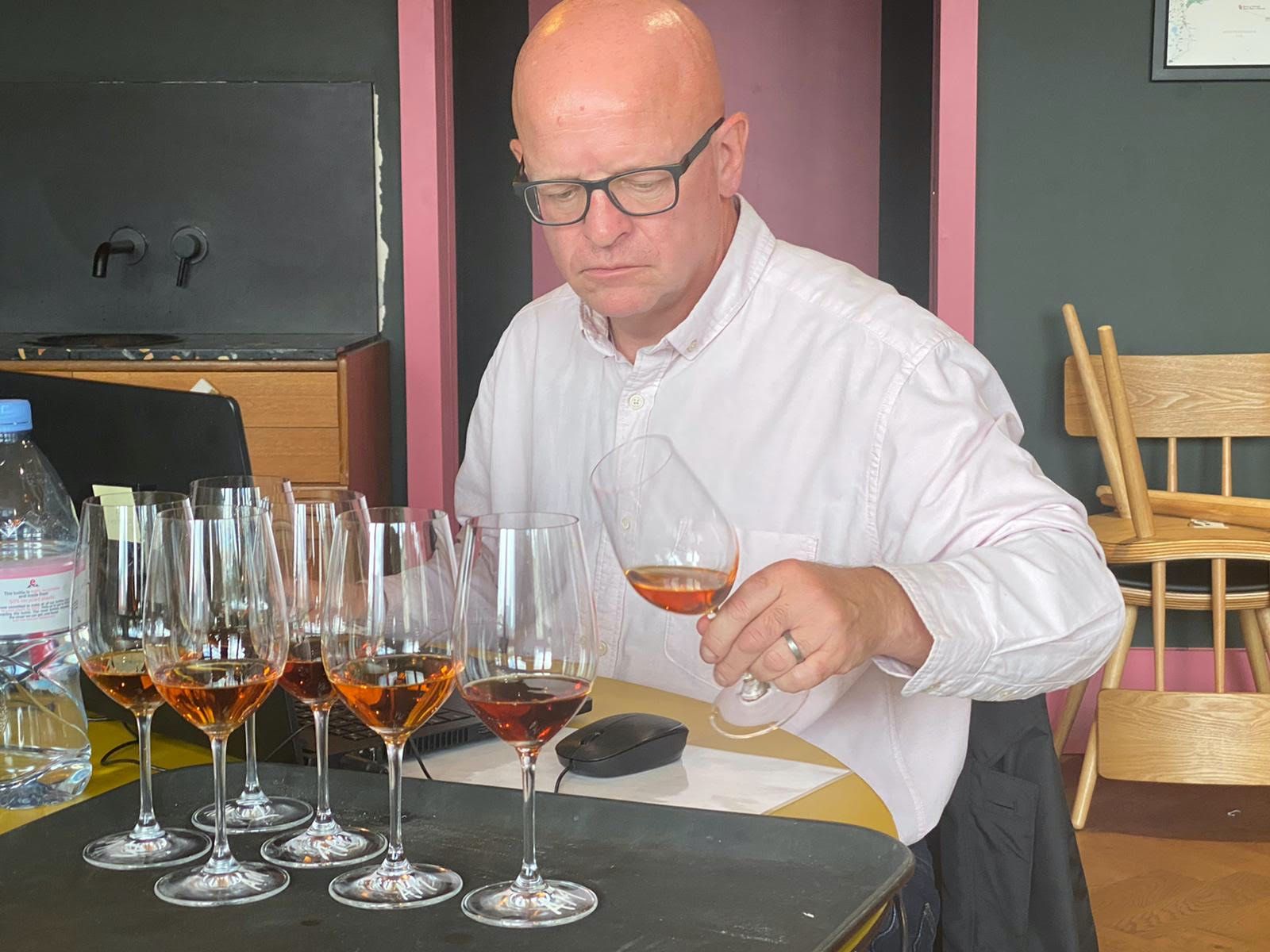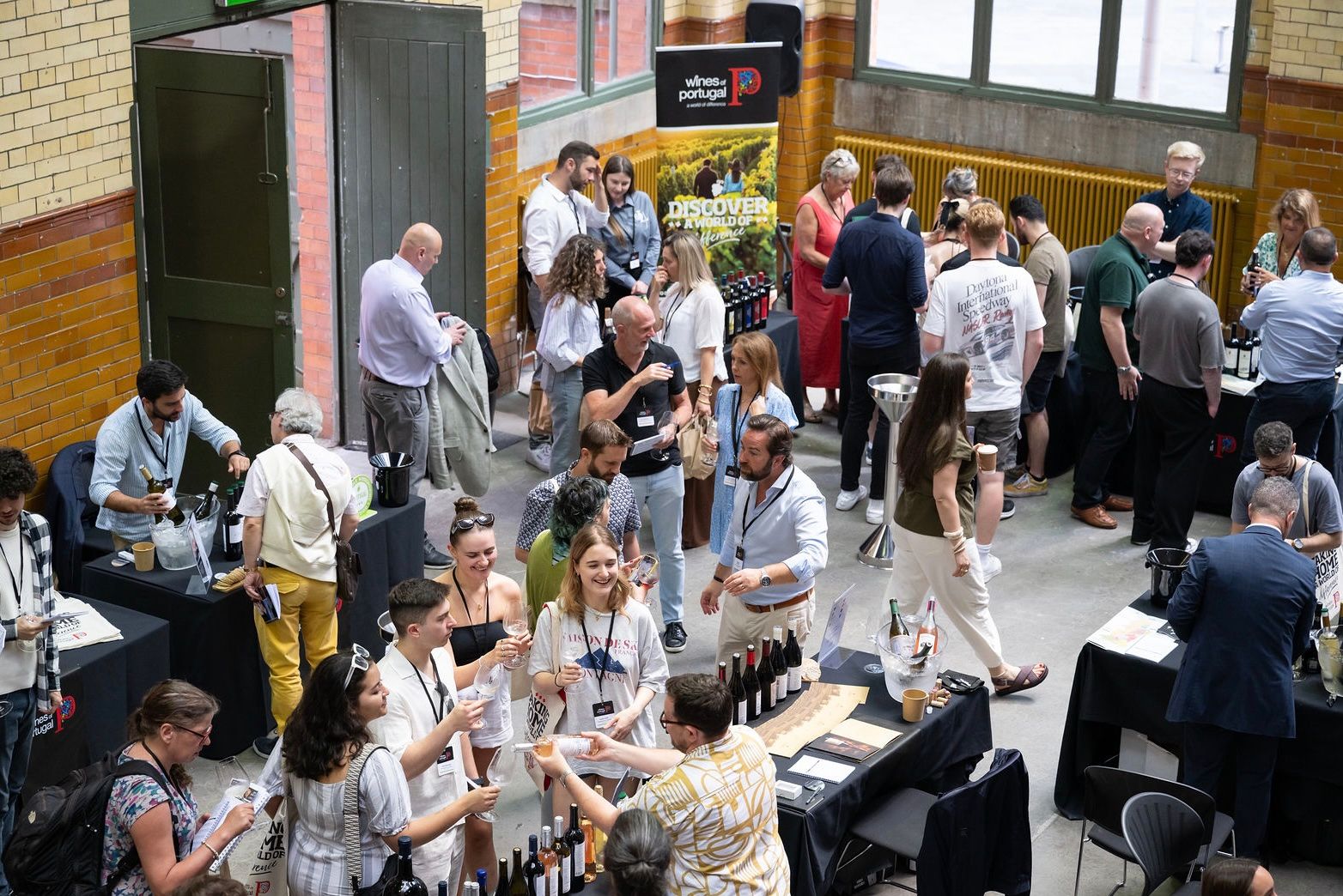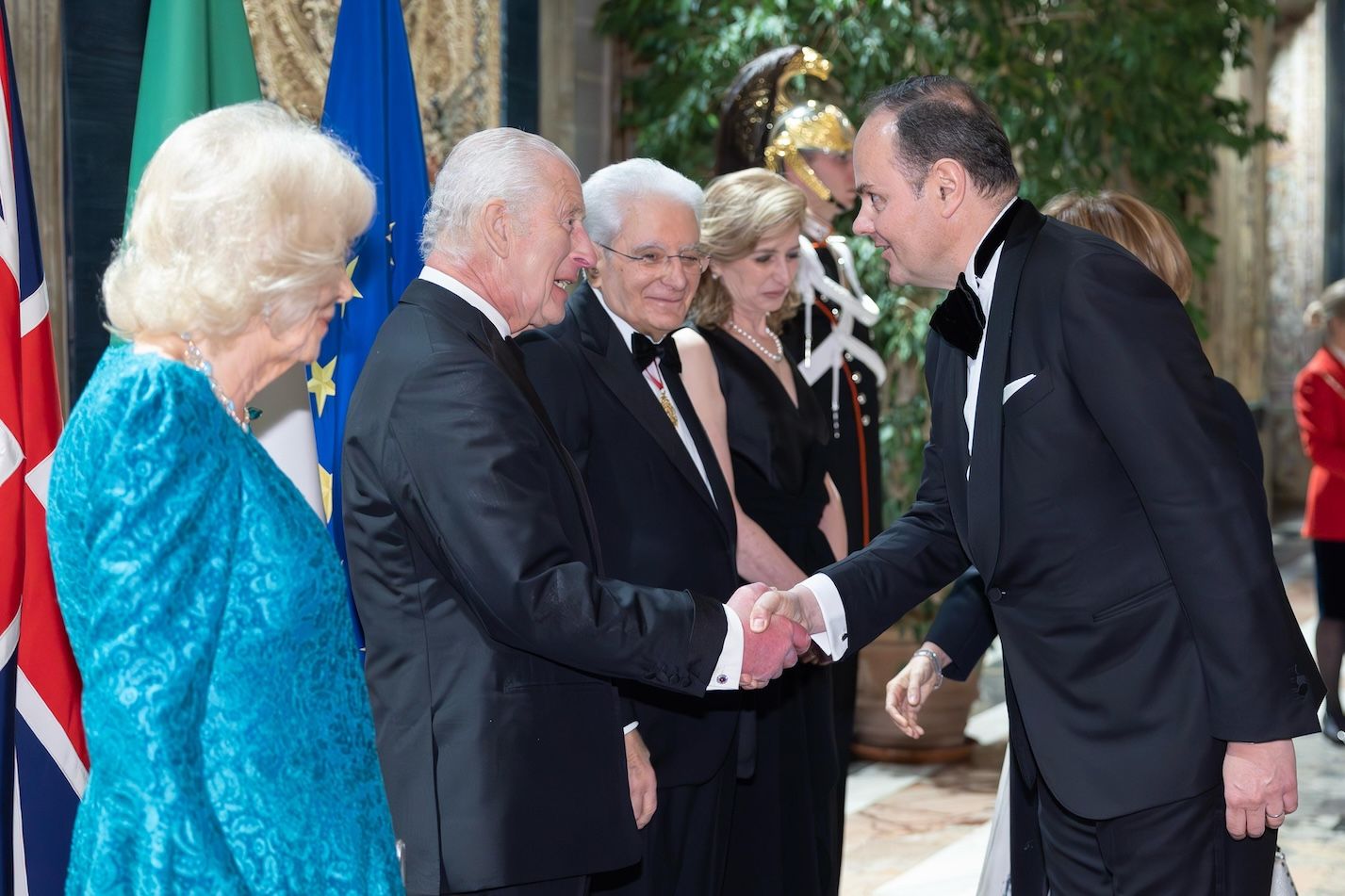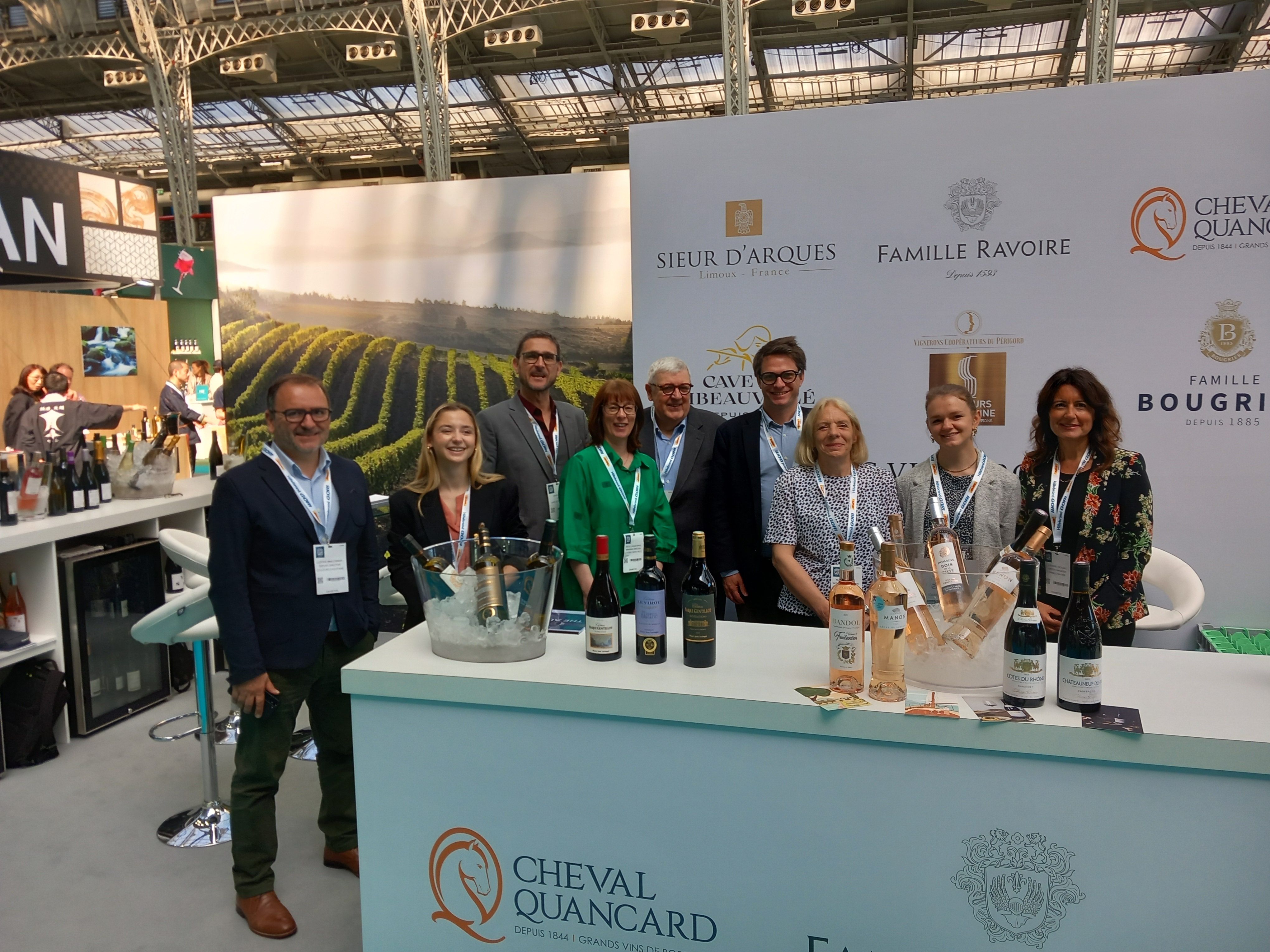The IWSC’s Back to School tasting takes place on October 11 from 12pm at China Exchange in the heart of London’s Chinatown. Alistair Morrell of Cider is Wine helps sets the scene for what you can expect.
Can you tell us about this special educational tasting event that is happening on October 11?
Education has always formed part of the drinks category, ever since, as humans, we started consuming fermented fruits 8,000 years or more ago. In the last 50 years or so we’ve been conditioned with a very clear and narrow EU definition of wine, initially set by the major European wine-producing countries, led by France, as a drink that’s made from 100% fresh grape juice.
Ciders, perries and fruit wines don’t have the same clear definition – it’s just 35% juice, all of which can be from imported concentrate here in the UK – so Cider Is Wine brings a new perspective by promoting wines made from apples, pears & other fruits, only fermented from 100% juice and not from concentrate.
How have you have all come together to work on this event?
I met Anton Lovatt from The Drinks Trust at the virtual London Wine Fair this year. They are looking for creative ideas to engage with the wider drinks trade and raise funds for their great charitable works.
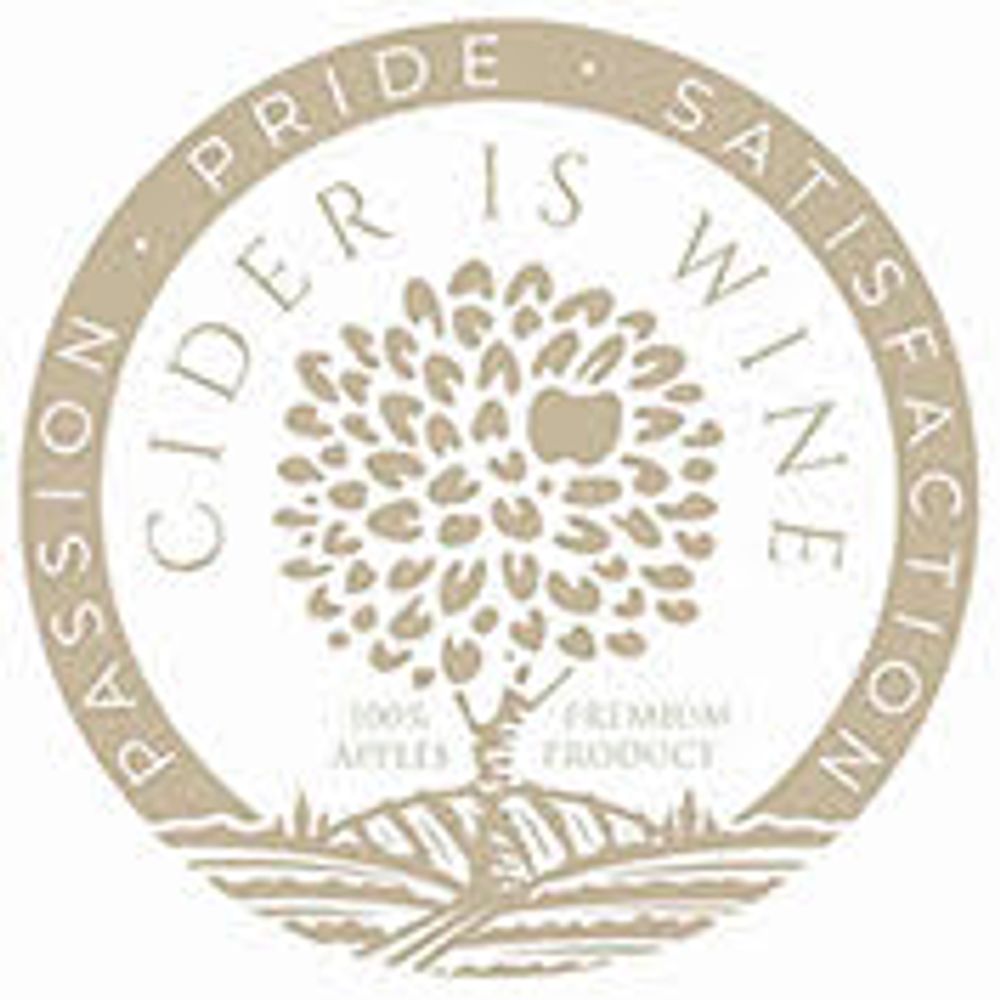
Cider Is Wine instigated and partnered with the IWSC on the inaugural 100% juice not-from-concentrate tasting. Through their extended connections and the IWSC Foundation we could extend that network to include the Institute of Masters of Wine and Wine & Spirit Education Trust. They have also, generously, provided the venue. We can be said to have a common objective and are all dedicated to bringing learning to the market in one way shape or form.
You are billing it as ‘Back to School’ and want to encourage as many drinks students to attend – why is that?
The drinks area is quite complicated and an area of dynamic innovation. We’re extremely keen to embrace those that are just beginning their journey into this incredible industry, just as much as those who’ve been in it for a while and want to keep abreast of both new and resurgent areas.
In regard to where we operate in the market, Cider Is Wine sees that wines made from apples, pears and other fruits are ideally suited to a younger, yet mature, generation (i.e.25-45 year-olds). Labelled as GenZ and Millennials, they drink alcohol differently than previous generations and have repertoires of drinks. Most importantly they want authenticity, provenance and to drink ‘less but better’. The ciders, perries and fruit wines we support (and sell) are artisan by their nature, reflect where they come from, who produces them, the varieties and production methods. In addition, they’re gluten free, vegetarian and vegan friendly and typically have about half the alcohol of a bottle of wine.
How have you decided how the event will work and what drinks you will have available to taste?
There is the opportunity to taste over 200 wines and spirits from lesser-known regions. It will also feature a selection of the IWSC’s 2021 gold medal winners, as well as the chance to test your knowledge with blind tasting challenges. This is a chance to discover drinks from the more unusual regions, including wines from China, Japan, Canada, and parts of Eastern Europe, as well as spirits including baijiu, shochu and rum, plus worldwide whiskies, vodkas and brandies.
The Cider Is Wine section includes IWSC medal winners as well as a cheeky opportunity to test your taste skills: cider or wine – can you tell?
You are putting the emphasis very much on discovery and promoting wines, ciders and spirits from the left field?
The drinks category has always been about ‘new’ and inspiring the market with innovations, opportunities to surprise and delight consumers. As a buyer at Asda I would be in awe of the fact that all we needed to do was to put ‘New’ collarettes on things through the store and we would see a 2% sales uplift.
Who do you think will benefit the most from this event?
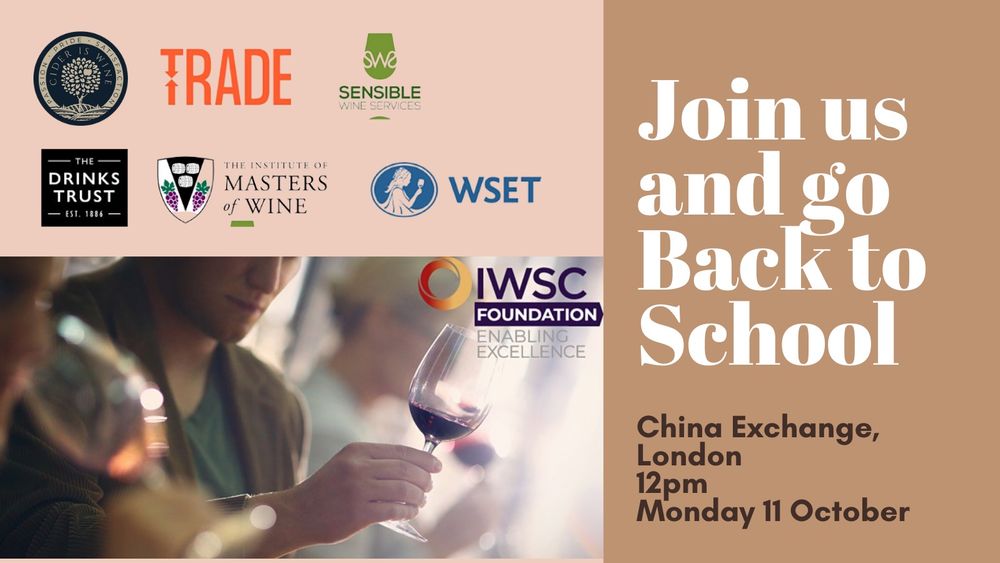
IWSC’s Back to School tasting is a great opportunity to taste a vast variety of drinks styles at one event
Anyone who has a drinks story to re-tell. There’s so much content that it could fuel any creative writer for a year. Students will gain an insight into new areas and possible subject matter for exploring during their studies, which in turn will bring something new to the trade. The press will gain insights into new areas to share with their audiences. The trade, especially hospitality, will find new products that tell different stories and surprise and delight their customers.
You also head up Cider is Wine. Can you tell us what the initiative is about and what your strategy for growth is?
Our mission is education, education, education.
Cider Is Wine’s vision is that, by 2030, all relevant trade and consumers globally will be aware that ciders, perries and fruit wines can be fermented from 100% fresh juice and not from concentrate. The Cider Is Wine quality mark, signified by the hologram our members put on every bottle, denotes that quality level.
The UK cider industry is worth approximately a fifth of the wine market and carries the lowest value per bottle of any of the alcohol sectors. We estimate the market for these artisan ciders, perries and fruit wines to be worth £150 million: niche in drinks market terms, but a sizeable and achievable target.
Ciders, perries and fruit wines fermented from 100% fresh juice and not from concentrate are wines by dictionary definition (Cambridge English Dictionary). Cider Is Wine is more than a technical definition though, it’s about the appreciation of the artisan skill, the terroir and uniqueness of each of these creations that sees them worthy of being valued as much as any fine wine. By appreciating them as wines as opposed to ciders, we then use them differently.
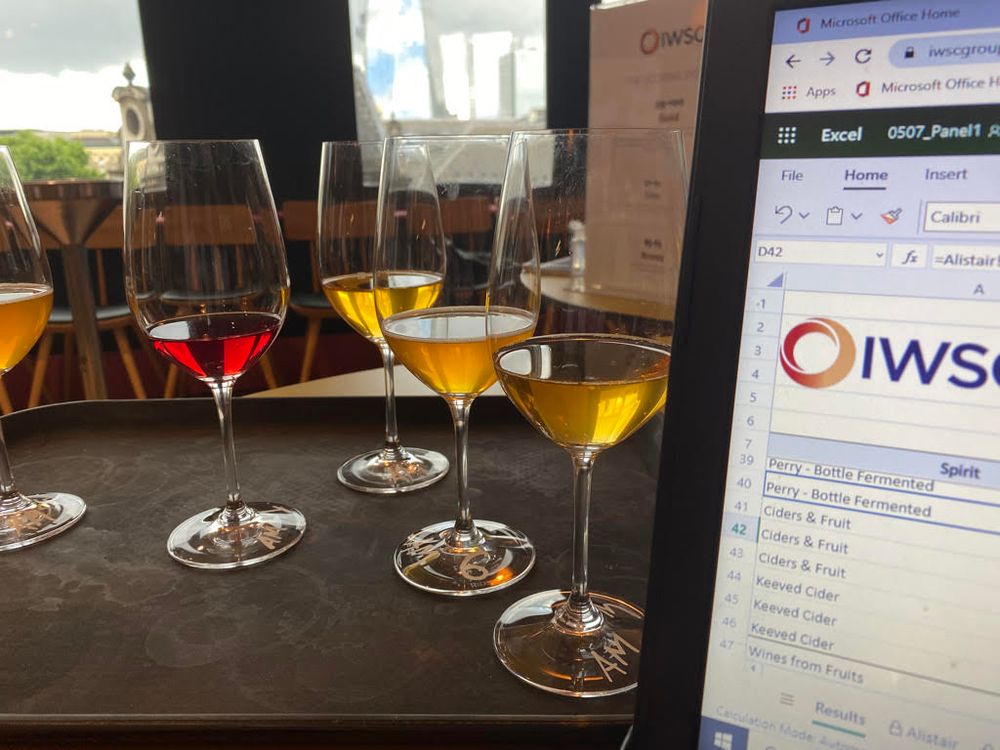
Judging ciders at this year’s IWSC event
The Cider Is Wine wholesale business appeals to hospitality, farm shops, delis, indie wine shops and gifting companies, where artisanship is valued and stories can be re-told, as well as offering an untapped new opportunity for informal drinking occasions. Indeed, any two people can happily sit down at lunch or informal meeting and share a 75cl bottle of, say, Tinston Anatomy and comfortably walk away from the table: the lower alcohol affords the opportunity of still having an authentic artisan drink without feeling burdened by a full bottle of wine.
We say appreciate these drinks as much as any fine wine.
As a retail web shop, we can demonstrate that consumers are truly persuaded by the proposition, where we achieve a retail price that’s some seven and a half times that of the UK cider average.
In summary, the strategy for growth is to engage with food- and drink-interested consumers and the trade to develop the commercial opportunity, so creating a whole new sector for ciders perries and fruit wines, fermented from 100% fresh juice and not from concentrate.
You linked up with the IWSC this year to host the first cider categories in a standalone competition – how did that come about?
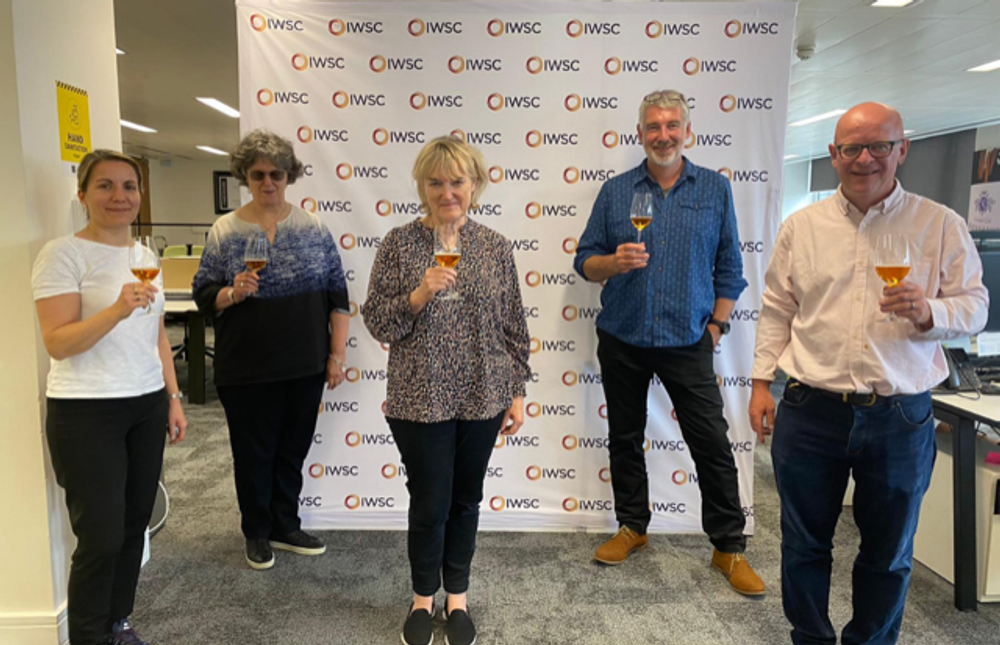
The judges for the inaugural included Fiona Beckett, Christine Parkinson, Laure Patry, Simon Day and Alistair Morrell
The notion of a tasting and awards from 100% fresh juice and not from concentrate ciders, perries and fruit wines – wines by any other name – was floated with Christelle Guibert, director of the IWSC some two years ago. Of course, we know what intervened, but happily Christelle retained the idea and came back to us in early 2021. (Click here to read a review of the tasting on The Buyer).
These drinks are a natural extension of wine, as Oz Clarke describes rather succinctly in this quote: “So let’s get this straight. 1: I pick the fruit – grapes for wine, apples for cider; 2: I crush the fruit; 3: I ferment the juice – grape juice for wine, apple juice for cider. What’s the difference between wine and cider so far? Nothing! Flavour, yes. Philosophy, no. Pure, properly grown fruit transformed into a delicious alcoholic drink by the simplest methods available… real wine, real cider… cider is wine… well, put like that, it sounds like that.”
How did the competition go in terms of entries – where did they come from?
We were delighted with the response. It’s very clear that producers want to be judged by their peers, and the 100% fresh juice, not from concentrate, provides the focus and credibility which persuaded them to enter in their droves. We had entries were from all over the world: New Zealand, US, Spain, France, Poland, Sweden, Chile, and, of course, the UK. We’re already looking forward to next year and cementing the competition into the fine wine calendar.
Any stand out styles or conclusions you made from the quality and diversity of ciders entered?
The quality noted by the stellar panel of judges was outstanding and afforded the opportunity to award two prestigious IWSC Trophies, 10 Gold and 27 Silver medals.
Like with the (grape) wine competitions, the stickies – the ice ciders – really stood out and gained the most plaudits. They really were the star of the show and Brännland secured the overall trophy for them.
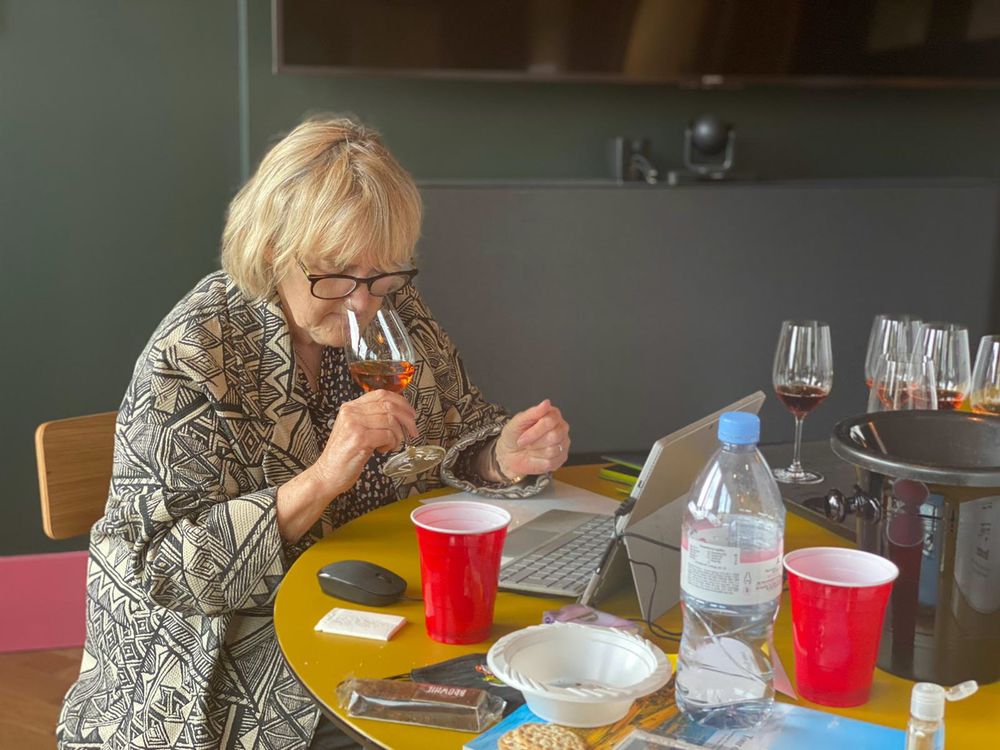
Fiona Beckett gets down to the serious business of judging ciders
The diversity of ciders, perries and fruit wines is reflective of the styles available in the market, from dry to sweet, still to sparkling, and everything in between. Many don’t realise that there is such a breadth of styles and tthe different food matching options that follow, which really do go wider than for grape wines.
We were also delighted to see a keeved cider from Alex Simmens at Llanblethian Orchards in Wales win a trophy. Keeving is a natural process unique to cider and perry production that yields richer taste, aroma, body and leaves natural sweetness in the drink. It used to be the stock in trade for South western cider makers in this country, but has now all but died out except for a few. It’s still often used in Normandy and it’s great to bring such a focus on this aspect, which is now almost completely unknown.
Despite the UK’s dominance in production – we produce 40% of the world’s cider – it was interesting to note the number of medals awarded to international entrants – 74% of foreign entrants achieved a medal of some sorts; whereas only 64% of domestic entries achieved a medal.
The progress of artisan cidermaking in the rest of the world is moving at pace and they don’t have what are effectively the commercial shackles that exist in the UK caused by the 7,000-litre free of all tax allowance for cider production. This may look like a gift, but it’s really quite difficult to break out of beyond this level and the result is that it holds back the commercial development of the UK industry.
Will they be part of the tasting in October?
Most of them will be there – it really will be a stellar line-up.
What would you say to buyers who question the quality or suitability of ciders for their list?

Oz Clarke is a big fan of ciders and thinks they should be taking more seriously
The quality of these drinks is without question and supported by expert commentators such as Richard Bampfield MW, Oz Clarke, Olly Smith, Helen McGinn and many more. Not to mention the prestigious IWSC tasting offering genuine peer review.
Beauty is of course in the eye of the beholder and as a buyer you need to be open to the notion that wines from apples, pears and other fruits is an allowable and desirable definition. In consumer terms we can demonstrate this through our customers many times over.
Commercially and with the right audience then these ciders will return many fold as they retail at wine-like prices; thus offering wine-like returns and surprise and delight customers enhancing their dining or retail experience.
Drinks are always an unknowable – will they sell or won’t they. With over 70 years’ drinks market experience and research then Cider Is Wine’s Directors also offer a level of reassurance that other newer entrants may not be able to offer.
In terms of suitability – what type of outlet is it – who are your customers?
A quick summary of the types of outlet would be informal, contemporary, experimental, surprise & delight… not all at once, but if you have some or all of these in the mix, then these drinks are for your outlet.
Range and selection are also important. We have over 100 SKUs from four continents and no minimum order, so any size of outlet can create a selection.
What do you think is driving the big changes taking place in cider sector in terms of the quality and range of ciders being made?
There’s no doubt that consumers want authenticity and provenance from their food and drink offer, as well as ‘less but better’. Within ciders, perries and fruit wines, and as experts, it’s up to us to define that for them in an easily digestible form that allows them to identify and choose at the point of purchase.
What do you see as the potential for quality and premium ciders in the UK?
We estimate a £150 million market for the drinks – and from our micro perspective, the sky’s the limit.
Are you hoping this educational tasting will be the first of other events – if so what other plans do you have?
Events are our business in many ways – we have to educate, and that means getting glasses in hand. October 8 sees us do an online tasting with Richard Bampfield MW – join here.
Food and drink critic and artisan supporter Nigel Barden is a great friend and we are hoping to put together something before the end of the year, as well as a French tasting in early November – watch this space. Going into 2022 there are a number of retail and trade events that we are considering and will no doubt be a strong part of.

